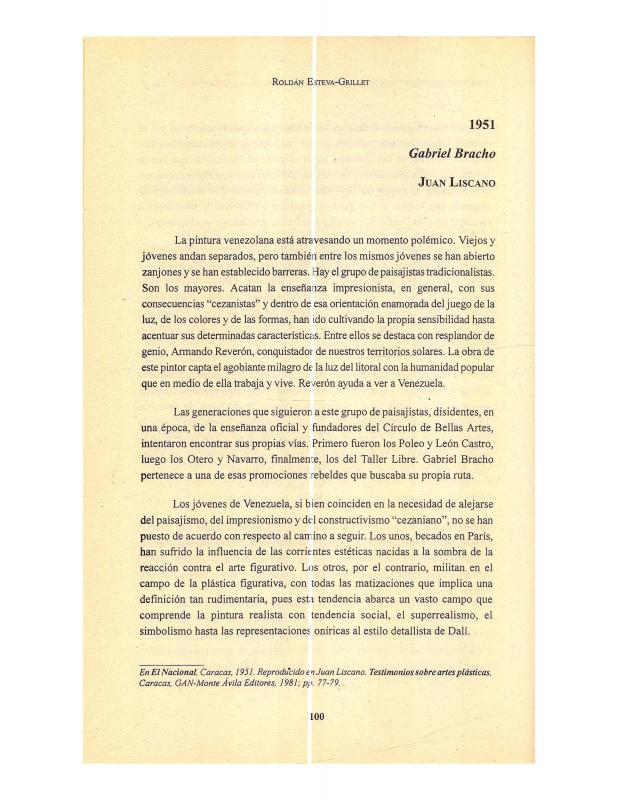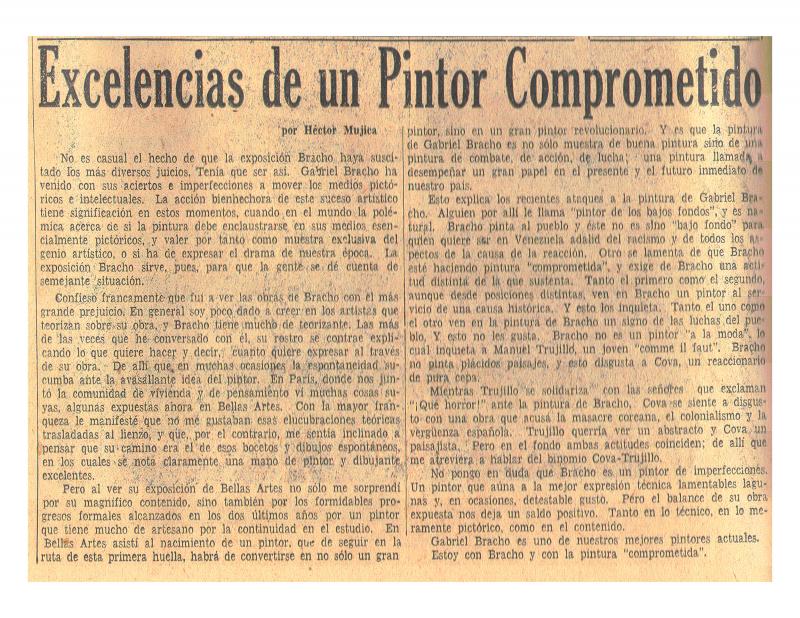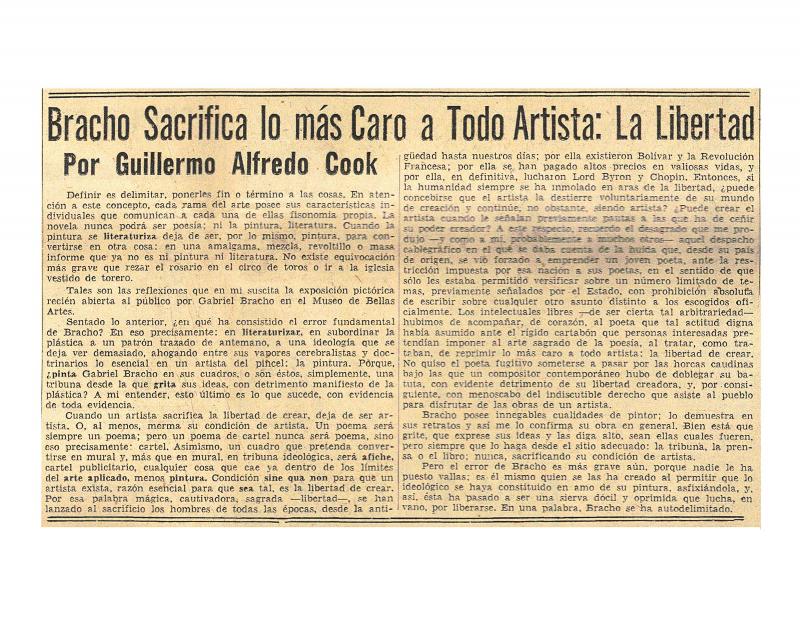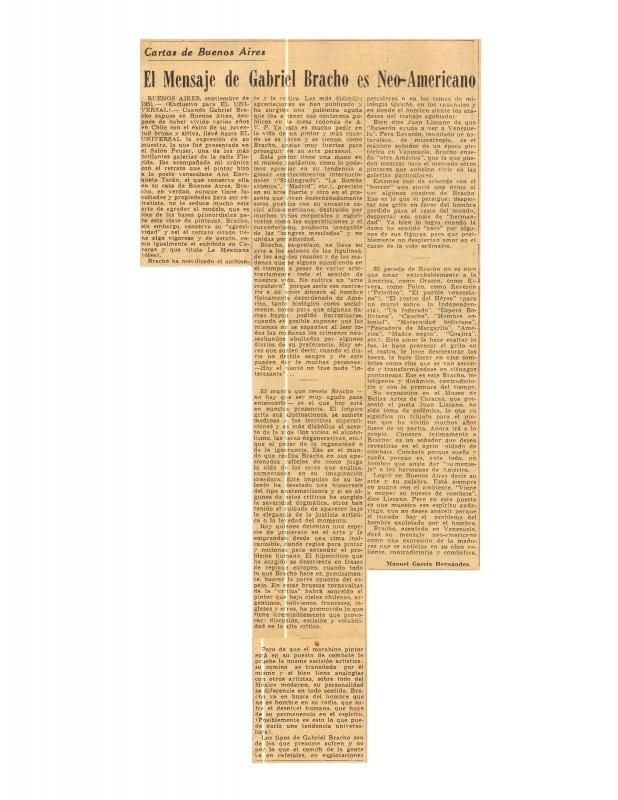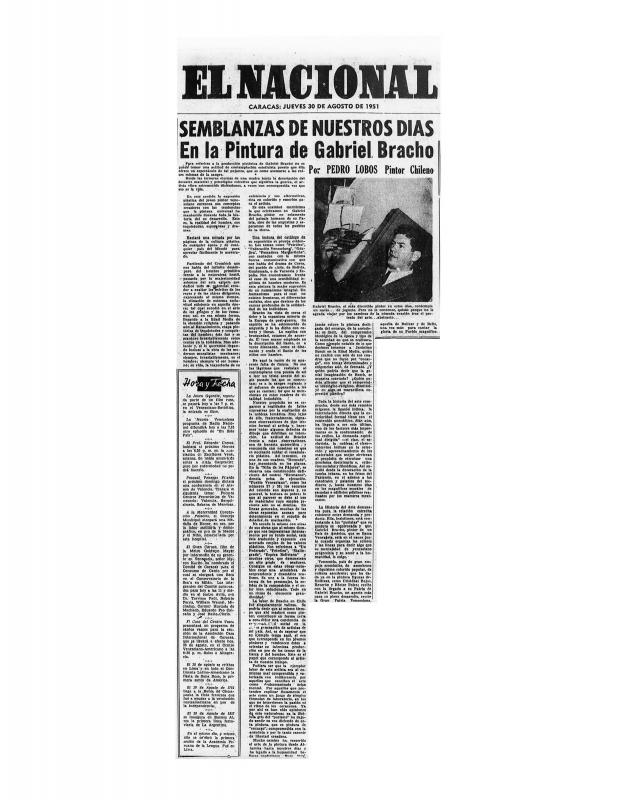This anonymous review of the exhibition of work by Gabriel Bracho held at the Museo de Bellas Artes de Caracas reflects the concern on the part of local art critics with the themes Bracho addresses; the artist’s detractors accused the sociopolitical criticism of his work of being “propagandistic.” Along these lines, the article places emphasis on Bracho’s adherence to Marxist ideas that it deems pertinent to artistic motivations and concerns tied to a political aesthetic operative in the themes of works in the exhibition. Even though the text praises Bracho’s virtues as an artist, his “commitment” is described negatively as that of a Marxist militant. The terms used to describe the political-ideological inclinations at stake in the artist’s work—terms like graphic transliteration of dialectic, painting of political ideology, the dramatics of a speaker at a political rally, fanaticism—attest to the vision of the one who wrote the review. In the context of great expectations surrounding the exhibition, the language used by the reviewer depicts an event for the public that was seen as polemic by the Venezuelan media, which itself was so modest in scale that the national press was willing to dedicate a great deal of space to an exhibition of this artist from Zulia.
For other texts on Bracho’s work, see Juan Liscano, “Gabriel Bracho” (ICAA digital archive doc. no. 850217); Hector Mujica, “Excelencias de un pintor comprometido” (doc. no. 845986); Guillermo Alfredo Cook’s article, “Bracho sacrifica lo más caro a todo artista: La Libertad” (doc. no. 850751); Manuel García Hernández’s review, “El mensaje de Gabriel Bracho es neo-americano: cartas de Buenos Aires” (doc. no. 1101870); and Pedro Lobos, “Semblanzas de nuestros días en la pintura de Gabriel Bracho” (doc. no. 1080662).

